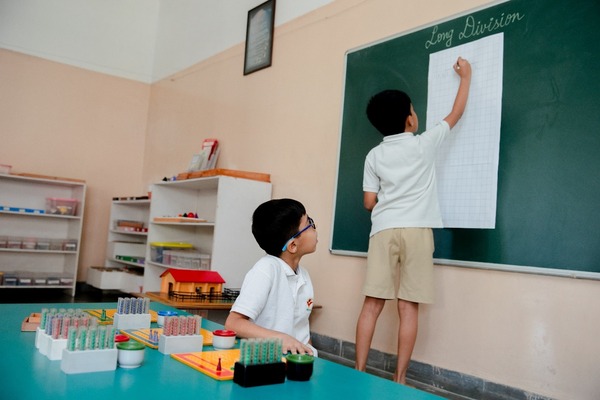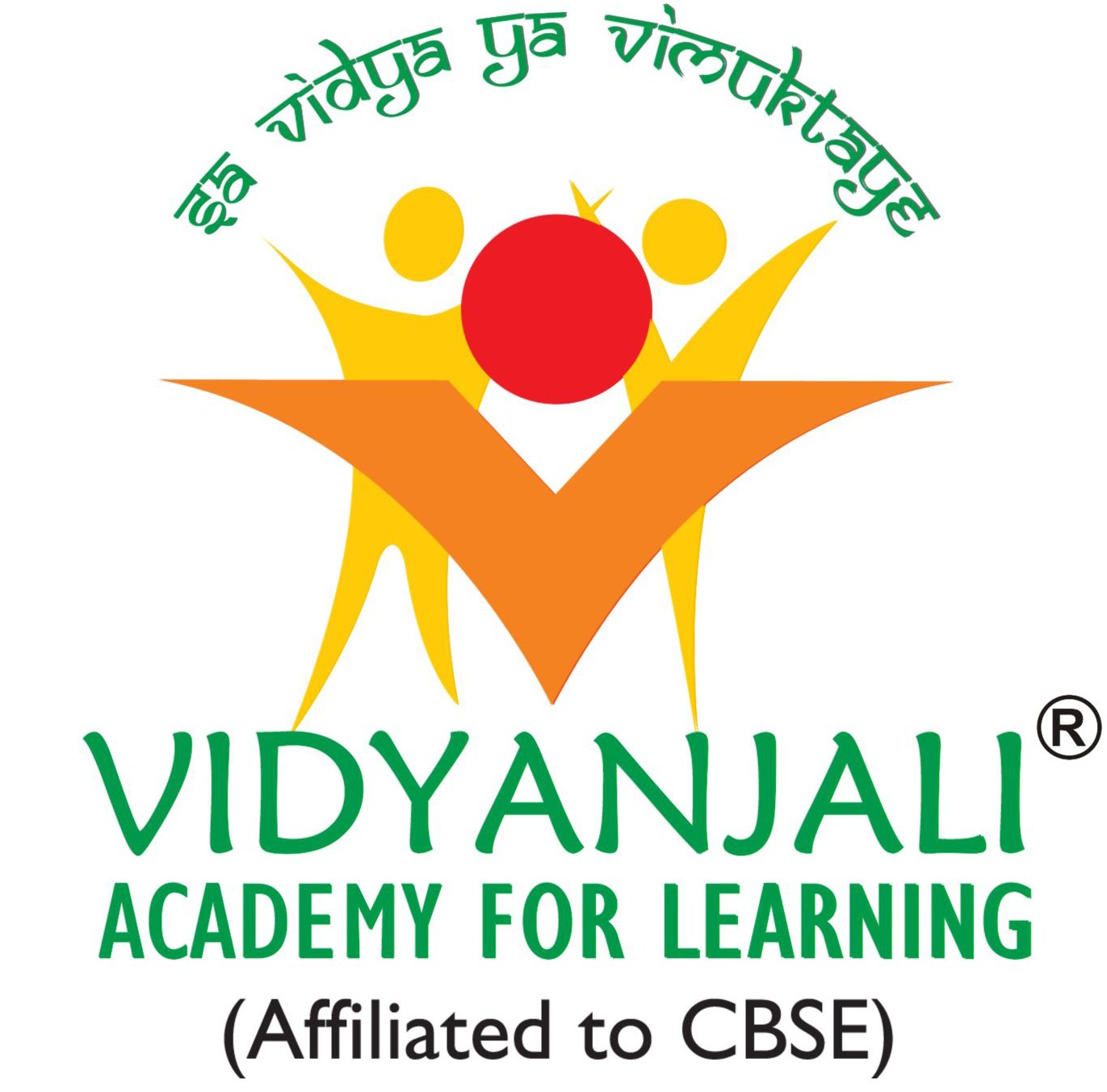
The
Montessori method has gained widespread recognition for its unique approach to
early childhood education. Unlike traditional methods, Montessori encourages
self-directed learning and values each child’s pace of development. This
approach respects individual learning styles and promotes both academic and
personal growth.
The
Vidyanjali Academy affirms the Montessori philosophy at its core. It believes
early education was an important foundation of lifelong attitudes toward
learning and growth. The method effectively prevails and makes a strong impact
on the developing years, skills, and love for learning.
In this
article, we will look at how the Montessori method-based approach of education
at Vidyanjali academy prepares students to deal with real-world problems at
their later stages of life.
What is the Montessori Method?
The
Montessori method, created by Dr. Maria Montessori in the early 1900s, focuses
on creating an environment where children are free to learn independently. It
respects a child's natural development and fosters exploration. Key principles include
child-centered learning, hands-on activities, and a carefully prepared
environment.
In
Montessori classrooms, learning is not led by lectures. Instead, children are
guided by a “prepared environment” that includes materials designed to
stimulate curiosity and engage their senses. The Montessori method differs from
traditional education by emphasizing independence and self-motivation, rather
than competition and rote learning.
Why Did Vidyanjali Academy Choose the Montessori Method?
Vidyanjali
Academy chose the Montessori approach because it aligns with the school's
mission to offer an enriching, nurturing education. Vidyanjali’s vision is
rooted in child-centered learning, independence, and respect for each student’s
unique potential. The Montessori method mirrors this vision by allowing
students to progress at their own pace and follow their interests.
The
academy believes that Montessori values match its goal of holistic development.
Montessori principles encourage curiosity, critical thinking, and a sense of
responsibility. This approach helps students develop essential skills that
extend beyond academics.
How is the Montessori Curriculum Implemented at Vidyanjali Academy?
Vidyanjali
Academy’s Montessori curriculum is thoughtfully designed for each stage of
development. The curriculum is divided by age groups: 3-6 years, and 9 years.
Each stage introduces age-appropriate activities to support intellectual,
emotional, and social growth.
For ages
3-6, the child starts learning mostly practical life skills, early literacy,
and simple math concepts. Activities like sorting and matching form the basis
for deeper study. At 9, this foundation could be built upon in areas such as
language arts, science, and cultural studies. Students work on projects meant
to foster teamwork and problem-solving.
At each
stage, Vidyanjali ensures that Montessori principles guide the curriculum. The
teachers offer hands-on experiences through which children learn through doing,
and there are no pressures of exams or set schedules.
What is the Montessori Classroom Environment Like at Vidyanjali Academy?
Vidyanjali
Academy's Montessori classrooms are characterized by calm, organization, and
stimulation. The shelves stocked with easily accessible learning materials are
arranged to encourage children to learn by selecting activities independently.
Such a layout enables students to trace their interests and gives them
confidence.
Class
equipment includes materials such as counting beads, shape puzzles, and sensory
objects. These materials help the students fit abstract concepts by hands-on
work. The physical environment is a safe and fully structured, oriented
environment that supports independence and creativity.
This
setup also encourages a sense of order and responsibility. Students learn about
the environment and how to take care of it, which brings about a sense of pride
and discipline.
How Are Montessori Educators Trained at Vidyanjali Academy?
Teachers
at Vidyanjali Academy undergo comprehensive training to deliver Montessori
education effectively. They learn to observe students carefully and understand
their unique learning styles. This training includes workshops on Montessori
principles, classroom management, and child psychology.
Vidyanjali
Academy also evolves with ongoing professional development to update educators
with best practices. All such educative processes help ensure continuous
learning by teachers, who are motivated through refresher courses and
collaborative workshops to deal with different kinds of learning needs and
provide one-to-one attention.
What Role Do Parents Play in Vidyanjali Academy’s Montessori Program?
Vidyanjali
Academy believes in involving parents in the Montessori journey. The school
offers workshops and resources to help parents understand the Montessori
philosophy and its benefits. This approach allows parents to create a
supportive environment at home that complements their child's learning.
Parent-teacher
collaboration is highly valued. Vidyanjali Academy encourages regular
communication between teachers and parents through meetings and updates. This
partnership creates a consistent learning experience that supports a child’s
growth both at home and at school.
How Does Vidyanjali Academy Monitor and Assess Student Progress in a Montessori Setting?
Vidyanjali
Academy uses observation-based assessments to track student progress. Teachers
observe students as they engage in activities and note milestones and areas for
improvement. The assessment focuses on a child’s overall growth rather than
just academic performance.
Student
progress is documented through portfolios, which include work samples and
teacher observations. These records provide insights into each student’s
learning journey. Vidyanjali Academy does not rely on traditional grades but
focuses on building skills and confidence.
What Are the Unique Montessori Activities and Projects at Vidyanjali Academy?
Vidyanjali
Academy integrates various Montessori activities that enhance both cognitive
and practical skills. For young children, activities include pouring exercises,
counting games, and sensory exploration. Older students work on projects
related to science, geography, and art.
Special
projects are designed to teach responsibility and teamwork. For instance,
gardening projects allow students to care for plants, learn about nature, and
understand the importance of patience. Vidyanjali Academy also encourages
students to engage in community projects, teaching them the value of compassion
and social responsibility.
How Does Vidyanjali Academy Ensure a Smooth Transition to Higher Education from Montessori?
Vidyanjali
Academy prepares students for a seamless transition to traditional education by
gradually introducing structure and academic rigor. As students’ progress through
the Montessori program, they develop strong study habits, adaptability, and
resilience, which make it easier for them to succeed in different educational
settings.
To
support this transition, Vidyanjali emphasizes critical thinking and
problem-solving skills. Students also receive guidance on time management,
which helps them adapt to the demands of higher education. Vidyanjali’s
approach has helped many students make successful transitions to traditional
schools and colleges.
What is the Impact of the Montessori Method on Students at Vidyanjali Academy?
The
Montessori approach has positively impacted the students of Vidyanjali Academy.
Parents report that their children are confident, independent, and have a real
love for learning. Teachers observe Montessori students mostly possessing
strong social skills while being respectful of others.
Research
further proves that Montessori education leads children to well-structured
academic and personal growth. Students nurtured by Vidyanjali Academy,
following the principles of Montessori, show creativity, responsibility, and
preparedness to undertake challenges in the future.
Final Thoughts
Vidyanjali
Academy has integrated the Montessori method to offer a unique and impactful
education. By focusing on child-centered learning, independence, and holistic
growth, Vidyanjali provides an enriching experience for its students. The
school’s commitment to the Montessori approach has shaped confident, curious
learners who are ready to take on the world.
Parents
interested in enrolling their children at Vidyanjali Academy are encouraged to
learn more about the Montessori program and see firsthand how this approach
supports their child’s development.
Frequently Asked Questions (FAQs)
1.
How does the Montessori method cater to different learning styles?
The
Montessori method is adaptive to each child's learning style because of the
choice of activities. For example, visual learners can work with colour-coded
math materials, while hands-on learners build their skills through practical
life exercises. Each child learns at his own pace, which makes Montessori
flexible for all types of learners.
2.
Is Montessori education suitable for every child?
Yes,
Montessori education accepts differences in abilities and personalities.
Independent learners can benefit from self-paced activities, and social
learners would enjoy group projects. Such a learning environment respects each
child's needs. Hence, it is flexible and helpful for children with various
learning preferences and skill levels.
3.
How does Vidyanjali Academy handle discipline in a Montessori
classroom?
The
Vidyanjali Academy encourages self-discipline by utilizing guidance to make
respectful choices. For example, if a child is disruptive to the work of another
child, then they are encouraged to observe or select a quieter activity. This
teaches the children responsibility, which allows them to think through their
actions.
4.
What are the enrollment requirements for Vidyanjali Academy’s
Montessori program?
Vidyanjali
Academy requires a parent interview and a child assessment before admitting the
child. This will help decide if the Montessori method would work for the
child's learning style. Parents are also briefed on the principles of
Montessori, which will help them understand the program's child-centred
approach and support their child's educational journey.



